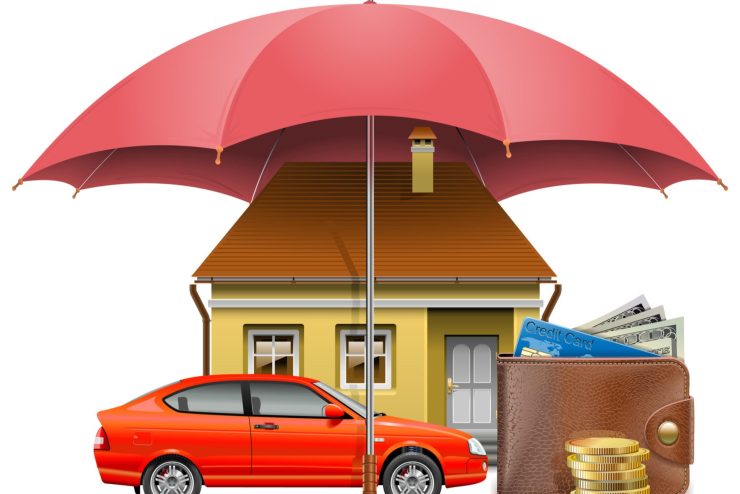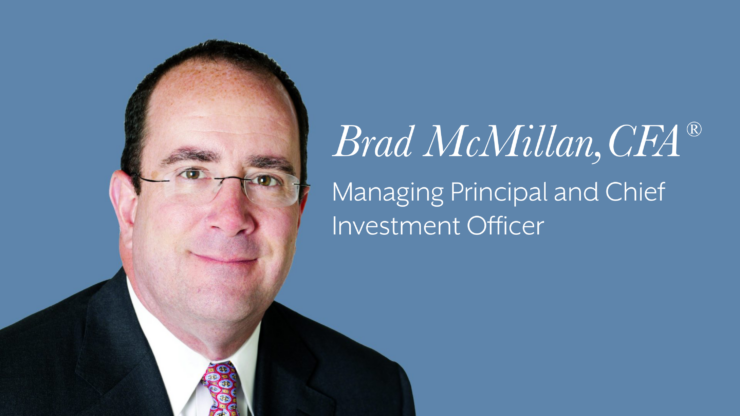Getting the Most Out of Your Property & Casualty Insurance
February 27, 2019
When you sit back and think about the most common types of insurance to protect your financial life, the first few that may come to mind are likely health, life and disability insurance. Rightfully so, since if you are reading this blog, protecting our health, income and family are likely at the top of your priority list. But what about protecting our possessions and financial assets? Think about that for a moment. The financial consequences of one accident or lawsuit could possibly reverse a lifetime of saving! For example, ask yourself, “What would be the financial consequences to me if my home was destroyed in a natural disaster, someone falls on my property and files a lawsuit against me, or if I am in a car accident and my passenger is critically injured?” These are all events we don’t want to think about but they could happen.
This is where property-casualty insurance can be used to specifically help protect your assets, and in turn, possibly prevent them from being depleted through a disaster or litigation claims brought against you. You might be more familiar with property-casualty insurance being referred to as auto insurance and homeowner’s insurance.
Property vs. Casualty
The property side of a policy insures physical items, such as homes, office buildings, automobiles, and any personal possessions or business inventory. Some specific types of property insurance are as follows:
- Homeowner’s Insurance
- Fire Insurance
- Flood or Earthquake Insurance
- Automobile Insurance
On the other side, casualty insurance (also known as liability insurance), covers you for losses you may cause another individual or business. In other words, in the unfortunate event of a car accident where you injure somebody, liability insurance may reimburse the injured third party’s medical and repair costs in full. Further, if someone were to file a lawsuit against you because you may have harmed them physically or destroyed or damaged their possessions, your casualty insurance may shelter you from the liability.
Homeowner’s Insurance
For a lot of people, their homes are their most valuable asset. Therefore, insuring this asset along with any valuable personal property is sensible. A typical homeowner policy covers both the individuals and the property associated with the home. After putting this policy into force, it may provide you coverage against your property being destroyed from natural disasters such as earthquakes, tornadoes, and other similar events, along with coverage for any liability claims you may be exposed to from someone getting injured on your property.
When deciding how much coverage is necessary with homeowner’s insurance, there are several areas to consider. The most important considerations when evaluating and comparing homeowner’s policies are the following:
- The cost of each policy
- The range of coverage offered (i.e. what natural disasters and types of property are covered)
- The coverage limits (i.e. the amount your insurance company will pay in claims)
As you discuss policies provisions with your agent, one important consideration is choosing either the Actual Cash Value (ACV) or Guaranteed Replacement Cost Value (RCV) of your property. An ACV policy takes into the property’s depreciation, while a Guaranteed RCV pays for the cost to rebuild your home exactly as it was prior to the catastrophe. While ACV is the less expensive option, it might not replace everything you might have expected it to cover and therefore RCV is preferred.
It is generally recommended that you have your house and items appraised to evaluate the home’s cost. For example, if you own a great deal of fine jewelry and expensive clothing, then these items should be appraised and insured on your homeowner’s policy.
Lastly, it is important to note that some carriers even have a wind/hurricane deductible, separate from the standard deductible, equaling 1 to 4 percent of their home! Many are unaware of this until they get hit.
Automobile Insurance
Just like your home, your vehicle(s) are valuable assets well. We use our cars daily to commute to work, drop our kids off at school, and take trips to the grocery store. Therefore, ensuring adequate insurance coverage on your car(s) are important as well.
IHS Markit reports that in 2016, the United States reached a record level of more than 264 million vehicles in operation (VIO). This is an increase of 6.2 million, or 2.4 percent, since 2015. As IHS Markit states, “This represents the highest annual increase the auto industry has seen in the U.S since it began tracking VIO growth…” As you can see, with more and more drivers on the road each year, the risk of bodily injury or automobile damage is greater than ever. Of course, when autonomous cars completely take over and are driving themselves or flying through the air with anti-collision technology, we won’t have to worry about crashes. Until then, they are a risk that needs to be carefully reviewed to protect yourself and your family financial well-being.
When considering which auto insurance to purchase, it is not uncommon for buyers to just pick the “cheapest” policy, while not fully understanding the dangers associated with too little of coverage. It is important to fully consider the cost of injuries or any property damages that can come with any claim, which in turn can put your financial assets at risk. When thinking about updating your current policy or purchasing a new one, you should ask yourself:
- Who does this policy cover?
- How much medical coverage is appropriate?
- Do I need any additional coverage such as rental car insurance or accident forgiveness?
- How much liability coverage do I have, or how much do I need?
Umbrella Liability Insurance
An often-overlooked, but very important, insurance policy is an umbrella liability insurance (ULI) policy. These policies work to protect your financial assets above-and-beyond the liability coverage on your homeowner’s and auto insurance policies. ULI is often referred to as “excess coverage” that can only be purchased once you have basic liability coverage.
Let’s face it, lawsuits are expensive and could reach into the millions-of dollars. Therefore, if someone is injured in your home, or if you cause a serious auto accident, you could be responsible for a potentially substantial judgment. If you don’t have an umbrella liability policy at the time of the accident, a judgement above the limits of your homeowner’s or auto insurance policy will come out of your pocket, potentially crippling your lifetime savings. Some of the most common coverages for ULI policies are the following:
- Protection on claims of bodily injuries or property damage caused by you
- Personal liability coverage for accidents that happen on your property
- Additional protection above basic auto policy
Determining how much liability coverage you need is not an exact science. Examining your net worth and potential risks (e.g. you are a dog owner or you have teenage drivers) is a good starting point to determining the appropriate coverage level. Coverage limits vary, but a typical policy will provide liability coverage worth $1 million to $10 million and is very affordable. Your P&C agent will certainly be able to provide guidance for the coverage limit.
Review your Coverage
Property-Casualty insurance is not the type of insurance you “set and forget.” In other words, it is wise to review your current coverages with your property and casualty agent at least every two years to make sure the limits are sufficient to replace your property in the event of a disaster or accident. Consider requesting quotes from other property and casualty insurers every several years to make sure that your premiums and coverages are competitive. Also, requesting homeowners and auto quotes all from one insurer is a good practice to qualify for multi-policy discounts, which in turn lowers your premiums. To help protect the assets you have accumulated for your financial future, it is important conduct these reviews.
As with any important financial decision in your life, please discuss your unique situation with your financial advisor to determine which option is right for you and your family.
Let the Certified Financial Planner® professionals at Williams Asset Management help with your wealth management needs. Whether you need comprehensive and holistic financial planning or investment management, we can help! We are fee-based, independent financial advisors located in Columbia, the heart of Howard County, Maryland. Schedule your complimentary consultation today by calling (410) 740-0220!


